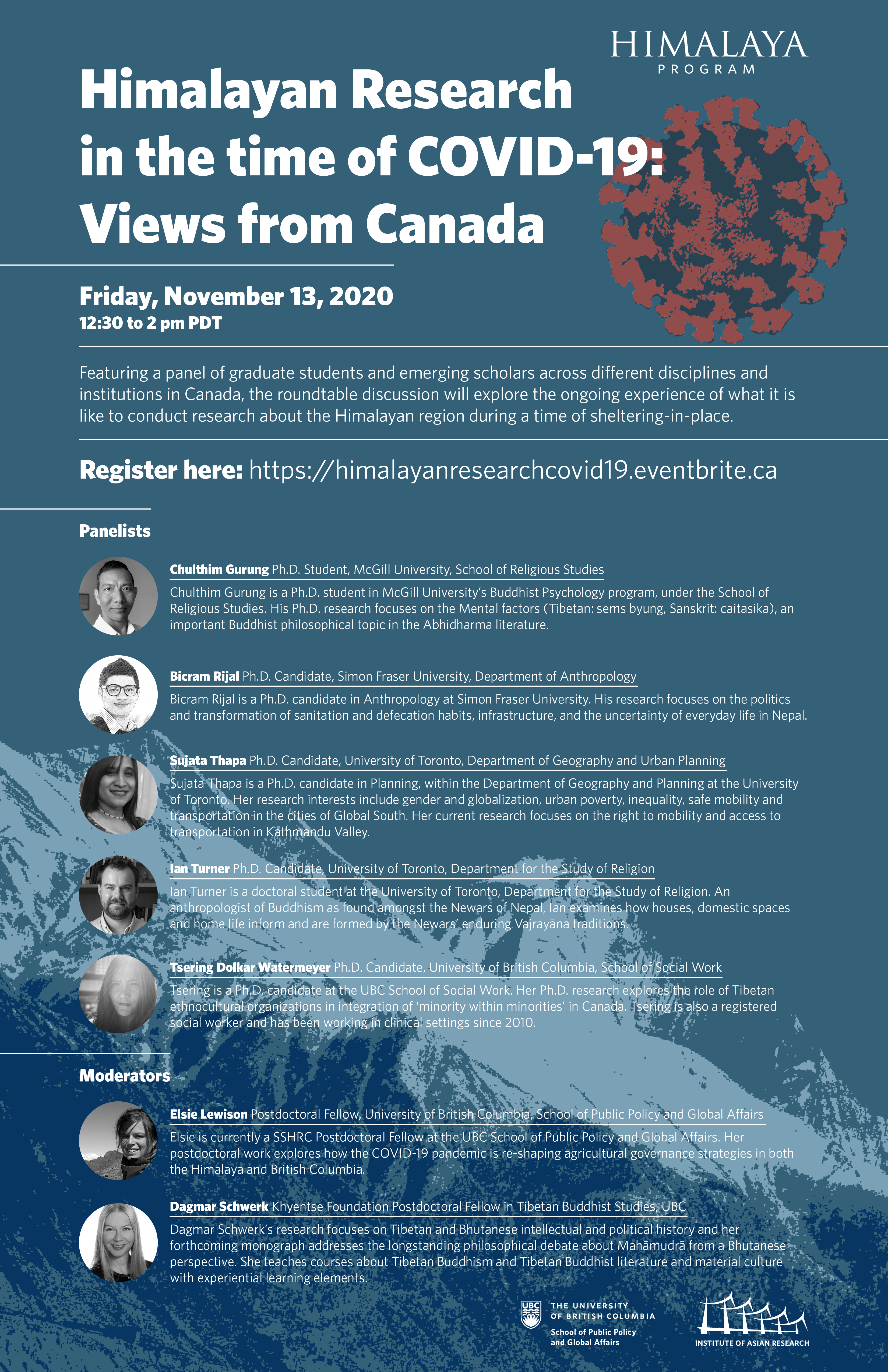Please go to the following link to view the recording of the event: https://www.youtube.com/watch?v=K8pat296YeU&ab_channel=UBCHimalayaProgram.
The event will be held on Zoom. Please register for the event here. The Zoom link will be emailed to you one week before the event.
Himalayan Research in the time of COVID-19: Views from Canada
Featuring a panel of graduate students and emerging scholars across different disciplines and institutions in Canada, the roundtable discussion will explore the ongoing experience of what it is like to conduct research about the Himalayan region during a time of sheltering-in-place.
Panelist Bios:
Chulthim Gurung is a Ph.D. student in McGill University’s Buddhist Psychology program, under the School of Religious Studies. His Ph.D. research focuses on the Mental factors (Tibetan: sems byung, Sanskrit: caitasika), an important Buddhist philosophical topic in the Abhidharma literature.
Bicram Rijal is a Ph.D. candidate in Anthropology at Simon Fraser University. His research focuses on the politics and transformation of sanitation and defecation habits, infrastructure, and the uncertainty of everyday life in Nepal.
Sujata Thapa is a Ph.D. candidate in Planning, within the Department of Geography and Planning at the University of Toronto. Her research interests include gender and globalization, urban poverty, inequality, safe mobility and transportation in the cities of Global South. Her current research focuses on the right to mobility and access to transportation in Kathmandu Valley.
Ian Turner is a doctoral student at the University of Toronto, Department for the Study of Religion. An anthropologist of Buddhism as found amongst the Newars of Nepal, Ian examines how houses, domestic spaces and home life inform and are formed by the Newars’ enduring Vajrayāna traditions.
Tsering Dolkar Watermeyer is a Ph.D. candidate at the UBC School of Social Work. Her PhD research explores the role of Tibetan ethnocultural organizations in integration of ‘minority within minorities’ in Canada. Tsering is also a registered social worker and has been working in clinical settings since 2010.
Moderator Bios:
Elsie Lewison is currently a SSHRC Postdoctoral Fellow at the UBC School of Public Policy and Global Affairs. Her postdoctoral work explores how the COVID-19 pandemic is re-shaping agricultural governance strategies in both the Himalaya and British Columbia.
Dagmar Schwerk‘s research focuses on Tibetan and Bhutanese intellectual and political history and her forthcoming monograph addresses the longstanding philosophical debate about Mahāmudrā from a Bhutanese perspective. She teaches courses about Tibetan Buddhism and Tibetan Buddhist literature and material culture with experiential learning elements.
